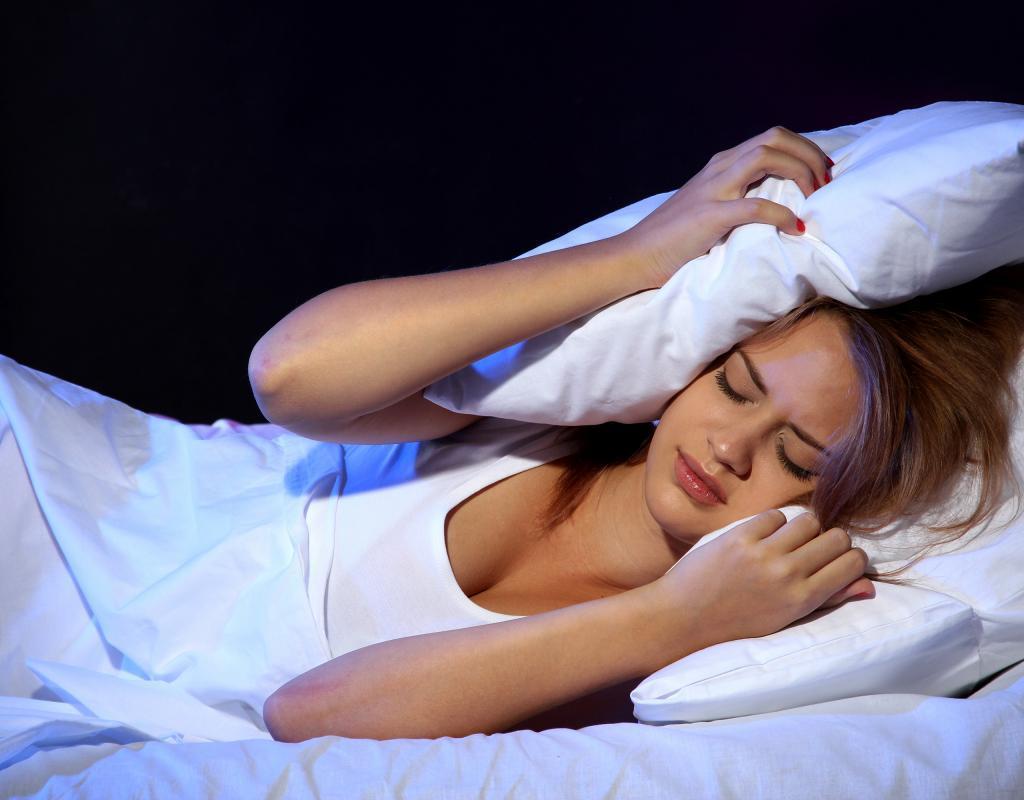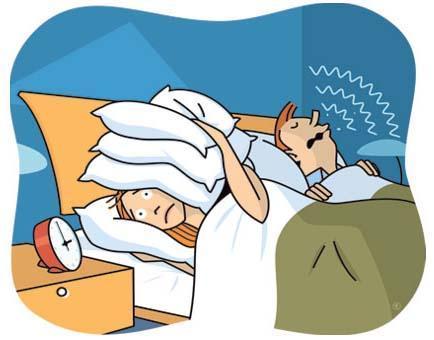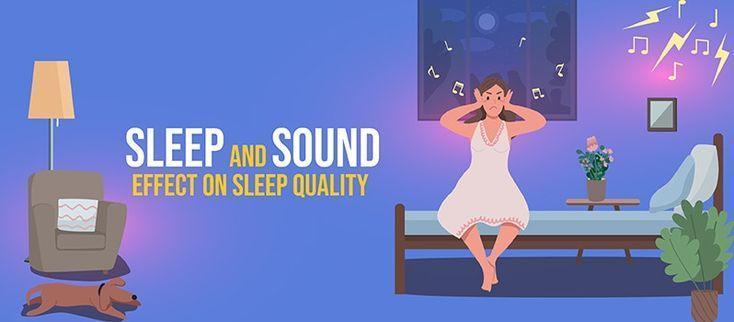Quietness is becoming increasingly difficult to come by in today’s hectic environment. Many daily sounds, such as your partner snoring, the sound of neighbors laughing late at night or music playing from across the hall, a buzzing phone on the bedside table, or television left on, can disturb you and have adverse effects given the importance of sleep for general health. It’s not always essential or even desired, though, to maintain complete stillness. In some cases, the sounds of nature can help you fall asleep better at night. Even when you’re completely asleep, it’s crucial to be able to hear things like a baby crying or the alarm going off. There are things you may take to combat noise pollution if you’re worried about the booming noise levels around you. If you can’t get a good night’s sleep because of noises that bother you, you need to find ways to block them out.
How Does Noise Affect Your Sleep?
Make sure you’re aware of the fact that noise is most disruptive during your light stages of sleep, which occur at the beginning of your sleep cycle and at various points during the night. REM sleep and deep sleep can also be awakened by disturbances. To receive the rest you require, it’s critical that you keep your bedroom free of disturbing noises throughout the course of the night. You may be unable to fall asleep at first due to noise at night, and you may wake up and be unable to get back to sleep once you have. Sleep deprivation can be caused by even non-awakening noises. While you sleep, your brain is still processing and registering sound. Sleep disturbances, even if they don’t wake you up, can cause restlessness and disrupt the natural progression from light to deep stages of slumber.

young beautiful woman lying on bed in bedroom
Other Noise Interruptions
Noise at night can have a profound effect on people’s sleep patterns. Some patterns of brain activity are associated with a higher tolerance for noise during sleep if you’re wondering why I wake up at night to noise and others don’t. If your brain produces more sleep spindles, which are bursts of high-frequency brain waves, you are better able to sleep through the night. Stage 2 sleep is when sleep spindles first appear, a stage of light sleep that accounts for roughly half of a regular night’s sleep.
New or strange sounds are more likely to wake you up in the middle of the night than the sounds you hear on a regular basis but don’t pay attention to. Getting used to new sounds is called habituation and it occurs both at night and during the day. People in cities fall asleep to the sounds of traffic every night—the same sounds that would likely keep rural people awake. During slumber, the meaning and significance of a sound might alter a person’s reaction to it. Even the tiniest of noises, such as the opening of a door, might wake you from a deep sleep. The sound of your children’s cries will wake you up almost immediately. We can see how intensely engaged our brains are to external stimuli during sleep by the way we react to noise.
How To Avoid Noises When Trying to Sleep
Traffic, sirens, planes, and people congregating outside are all regular sounds in a metropolis. Noise from appliances, cars, neighbors, and animals can’t be totally avoided even in rural or suburban areas. It’s also possible that noise from other people or dogs in the house will keep you awake. As you go through these suggestions for keeping your home quiet at night, keep in mind the individual sounds that have an impact on your home.
Adjust Your Bedroom Environment
Good sleep hygiene necessitates making your bedroom as peaceful as possible so you can get a good night’s rest.
- Add soft surfaces: Hard surfaces reverberate and soft ones absorb sound. When it comes to reducing or eliminating noise in your bedroom, you can try adding rugs, cushioned furniture, or thick drapes.
- Insulate windows: Soundproof windows can be installed and air gaps in your windows can be sealed if you’re experiencing noise pollution from the outside.
- Reduce appliance noise: If you hear strange noises coming from your refrigerator or air conditioner, have it fixed. Make sure that the appliance you purchase is silent when it’s time to replace it.
- Turn off alerts: Don’t let notifications from your electronic gadgets wake you up in the middle of the night by turning them off or putting them on silent mode.
Plug Your Ears
It’s possible that you won’t be able to soundproof your bedroom due to your living arrangements. As long as they don’t interfere with your sleep, earplugs can be an efficient sleep aid. Researchers found that patients in the hospital who put on noise-canceling earplugs and an eye mask had a better night’s sleep than those who didn’t.

Noise-canceling headphones are an alternative to earplugs because they are compact, comfy, and designed to block out noise while allowing you to listen to peaceful sounds that may help you sleep.
Negotiate With Others
Communicate with your housemates about how they can help you sleep better and how you can do the same for them if they are the predominant source of noise at night. There will always be some noise at night when people are on different sleep schedules, but you might try establishing a set of guidelines for quiet hours. Consider, for example, requesting that your roommate or partner use headphones while watching TV or listening to music so that you can sleep uninterrupted. Preparing the next day’s meals and outfits while you’re awake might also help minimize interruption.
Do not sleep well at night because of your partner’s snoring. Anti-snoring mouthpieces or lifestyle adjustments may assist. You may be suffering from the condition if you snore loudly, choke, or gasp during the night. If you see any of these signs in your partner, you should consult a physician right away.
Is It Better to Sleep in Silence or With Noise?
All of us would be able to sleep peacefully in a soundproof chamber in a perfect world. However, for the vast majority of people, evening noise exposure is a fact of life.
To reduce the amount of noise in your bedroom at night, you may want to follow the procedures listed above, but if it isn’t enough, an “acoustic perfume” may assist. It is possible to reduce the detrimental effects of noise exposure during sleep by using constant background noise. Background noise can also help some people relax and prepare their minds for sleep by distracting them from worrying or unwanted thoughts.
Background noise may or may not increase your quality of sleep, according to several research. In one study, introducing the noise of an air conditioner to the bedroom had no positive effect on sleep quality. Researchers in another trial discovered that playing white noise in the rooms of hospital patients increased their quality of sleep. Source You Can Count On The National Biotechnology Information Resource Biomedical and genomic information is made available through the National Center for Biotechnology Information, which promotes science and health by offering access to biomedical and genomic data for a period of three nights.nlm.nih.gov. In the third research of insomniacs, white noise was found to help patients fall asleep 38% faster. The utility of introducing background noise may depend on human preference, given the inconsistencies in the data.

What Are the Best Sounds to Sleep To?
The finest night sounds for sleeping can vary from person to person, but consider using sounds that are loud enough to hide other noises and that maintain a consistent tone and level; rapid sound changes may trigger you to awaken. To find out what works best for you, try out a few different approaches. We’ve got a few ideas to get you going:
- White noise: Creating white noise is as simple as combining several sound frequencies together. Consider purchasing a white noise machine or white noise software for your mobile device to help you sleep better at night.
- Turn on a fan or air conditioner: Ambient noise from these gadgets can be used to mask annoying sounds from the outside world.
- Music: The songs that help you relax and drift off to sleep are those that appeal to your unique musical preferences and memories of your own musical experiences. You may make a playlist of songs that you find soothing, or you could look for tailored sleep playlists on streaming sites like Spotify.
- Sounds from nature: Listening to the sounds of nature can help some people fall asleep. You can either buy a sleep sound machine that comes pre-loaded with a variety of noises, or you can use the internet to find and download sound files and apps.

![Top Rated CPAP Machine Buyer’s Guide [current_date format=’m/Y’]](https://bestpillowsleepers.com/wp-content/uploads/2023/03/best-cpap-machine-img_6405d72310053-400x300.jpg)
![The 11 Best Cooling Weighted Blankets [current_date format=’m/Y’]](https://bestpillowsleepers.com/wp-content/uploads/2023/01/best-cooling-weighted-blankets-img_63d4ff15c615d-400x300.jpg)
![Ultimate Guide to Choosing a Best Cooling Mattress Pads [current_date format=’m/Y’]](https://bestpillowsleepers.com/wp-content/uploads/2023/01/best-cooling-mattress-pads-img_63c403115126b-400x300.jpg)
![Ultimate Guide to Choosing a Best Cooling Mattress [current_date format=’m/Y’]](https://bestpillowsleepers.com/wp-content/uploads/2023/01/ultimate-guide-to-choosing-a-best-cooling-mattress-img_63bcdba870d77-400x300.jpg)
![Ultimate Guide to Choosing a Best Cooling Comforters [current_date format=’m/Y’]](https://bestpillowsleepers.com/wp-content/uploads/2023/01/ultimate-guide-to-choosing-a-best-cooling-comforters-img_63bba2f5cd3ce-400x300.jpg)